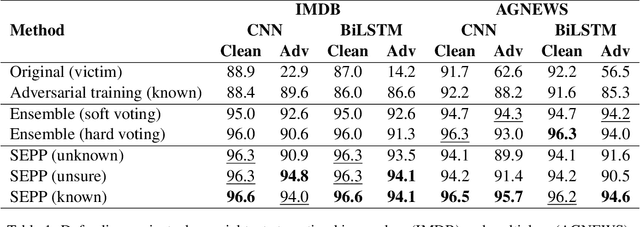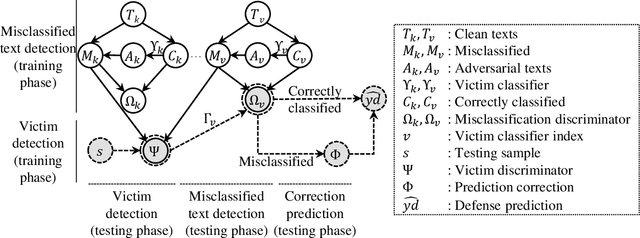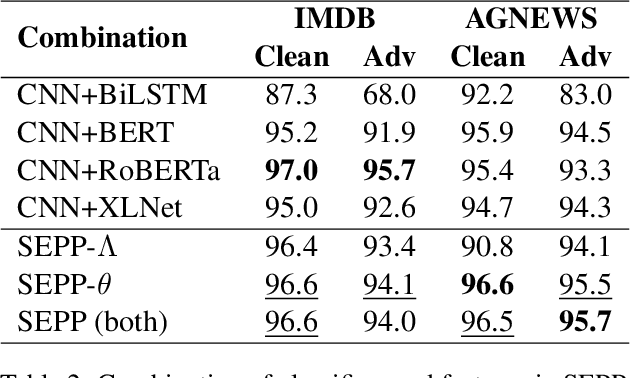SEPP: Similarity Estimation of Predicted Probabilities for Defending and Detecting Adversarial Text
Paper and Code
Oct 13, 2021



There are two cases describing how a classifier processes input text, namely, misclassification and correct classification. In terms of misclassified texts, a classifier handles the texts with both incorrect predictions and adversarial texts, which are generated to fool the classifier, which is called a victim. Both types are misunderstood by the victim, but they can still be recognized by other classifiers. This induces large gaps in predicted probabilities between the victim and the other classifiers. In contrast, text correctly classified by the victim is often successfully predicted by the others and induces small gaps. In this paper, we propose an ensemble model based on similarity estimation of predicted probabilities (SEPP) to exploit the large gaps in the misclassified predictions in contrast to small gaps in the correct classification. SEPP then corrects the incorrect predictions of the misclassified texts. We demonstrate the resilience of SEPP in defending and detecting adversarial texts through different types of victim classifiers, classification tasks, and adversarial attacks.
 Add to Chrome
Add to Chrome Add to Firefox
Add to Firefox Add to Edge
Add to Edge